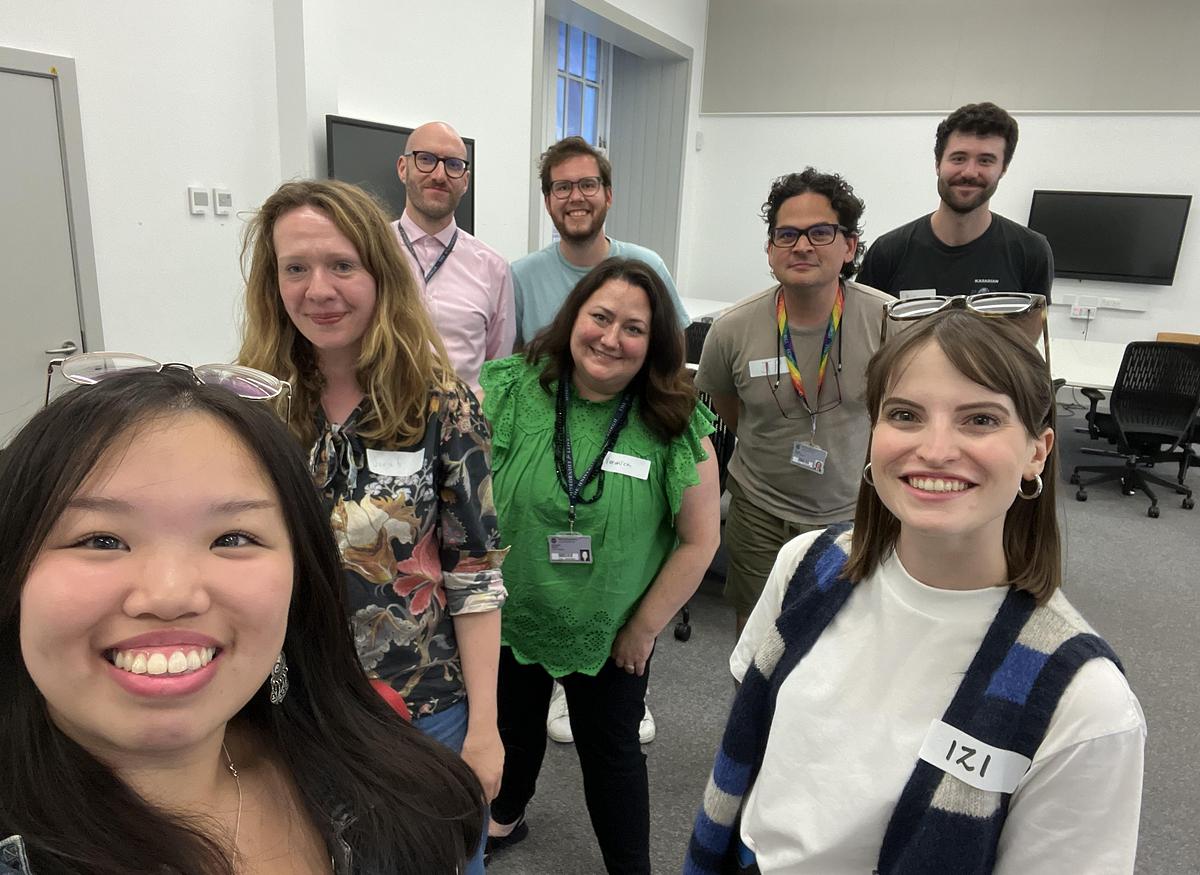The Environmental Justice Book Club: The Intersectional Environmentalist by Leah Thomas
The School of Geosciences' newly formed Environmental Justice Book Club had its inaugural meet up on 30th July to delve into themes from Leah Thomas’ book 'The Intersectional Environmentalist'.
This book offers a foundational exploration of the interconnectedness between environmentalism, racism and privilege over time. Thomas, who coined the term "Intersectional Environmentalism," explains how all oppression is linked. She refers to 8 identity aspects: age, ability, race, ethnicity, gender, sexual orientation, socioeconomic status, and religion, which can interact and combine to amplify discrimination faced by people. Readers are therefore urged to consider these identity aspects, reflect on any personal privilege they possess, listen, learn and elevate these voices going forward, and work collaboratively for the betterment of the planet.

Our reflections
Our meeting kicked off with an exercise to get the group engaged: selecting one of the five pledges suggested in the book that resonated with us the most. Although choosing just one was a challenge, this activity prompted introspection on how we, both professionally and personally, could make a difference.
The pledges that particularly stood out were:
I will proactively do the work to learn about environmental and social injustices that Black, Indigenous and POC communities face without minimising them. I will respect the boundaries of Black, Indigenous and POC friends and activists, and not demand that they perform emotional labour or do the work for me.
I will amplify the messages of Black, Indigenous and POC activists and environmental leaders. I will not remain silent during pivotal political and cultural moments that impact Black, Indigenous and POC communities and all marginalised identities.
Addressing the ongoing nature of ‘pivotal political moments’, we reflected on sustainable ways to maintain consistent long-term advocacy.
Ways to take action in our community
Maintaining a safe and confidential environment, our group conversation ranged from understanding key terminology to the implications of current events. We distinguished between "Intersectional Environmentalist" as an identity and "Intersectional Environmentalism" as a critical lens for viewing environmental justice: the ultimate goal.
We also considered local and international injustices, drawing on examples from the book and our own experiences. This was timely given the release of the University’s Race Review, prompting discussions on how this can be actioned in the School of Geosciences.
The ‘Rooting’ exhibition in the University of Edinburgh’s main library was highlighted as a particularly noteworthy opportunity; artwork which explores the institution’s entangled relationship with economic and colonial legacies. The exhibition is free to access until the 15th November.
Building a supportive environment
As part of our commitment to inclusivity and learning, we co-created a set of evolving engagement rules to ensure a consistently respectful space, in which we can communicate with confidence.
These included:
- Don’t interrupt others
- Commit to active listening
- Be respectful
- All contributions are good
- No intentional harm
- Be brave
- Constructive accountability
- Always act with kindness
Additionally, we also introduced the “Oops, Ouch, Whoa” framework to navigate challenging conversations. For those of you who would like to know more, click on the following link.
Interested in joining?
The Environmental Justice Book Club is currently coordinated by Izi Robe, Killian Bohan and Sarah Bissett from the Edinburgh Climate Change Institute’s Partnerships Team and organised through a Teams Group with students and staff in the School of Geosciences plus other interested research groups and projects across the University of Edinburgh. Don’t worry if you haven’t had a chance to read the book being discussed; you’re always welcome to attend, listen and participate.
Facilitation is continually evolving, and the team is always open to feedback: just send us an email at ecci.info@ed.ac.uk or catch us around ECCI for a chat in person!